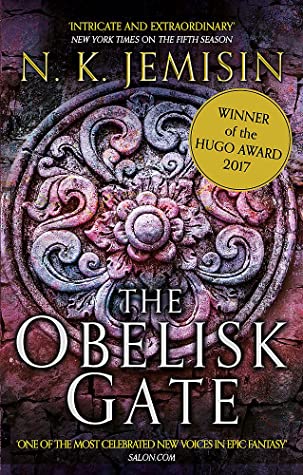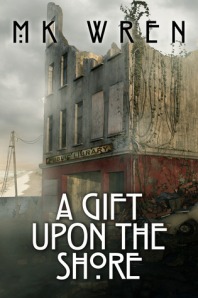Steven L. Peck
A Short Stay in Hell
What fresh hell is this? Actually, Peck’s take on the underworld is quite fresh and not at all what I was expecting. Now, if you’d told me that hell was a library where the books were unreadable, I’d say that was some Saw-level torture porn.
But that is not what this book is about. In fact, Peck is at first able to sell this premise to the reader in such a way that it appears to be a pretty light sentence. By the time we realize how truly horrible it is, we’ve learned there are far worse things to be found in hell.
Other people.
That’s right, this book about the afterlife, written by a Mormon ecologist, deserves a place firmly on the existentialism shelf of your library.
Let’s backtrack a moment for context. In this philosophical novella, Soren, a lifelong Mormon, dies and learns that he has chosen the wrong god and has been sent to a Zoroastrian hell. It’s not too bad at first: Meals are provided. You can still have sex. You can get drunk without hangovers. You are once again 25 and wake every morning pain free. And you live for near eternity inside a library.
However, each occupant of hell has one task, and that is to search the stacks of books until they find the one that tells their life story in full. Once that’s accomplished, this denizen of hell will be reshelved in heaven.
There are two problems:
First, this hell is based on Jorge Luis Borges’ short story, “The Library of Babel,” which concerns a library that contains not just every book that has ever been written, but also every possible book that ever could be written, including all configurations of letters, numbers and symbols.
It’s not infinite, but may as well be for practical purposes. Even worse, not only does it take eons to find the correct book, it is next to impossible to even find a readable one. (In this biblio multiverse, there necessarily exists a book consisting only of periods, another of semicolons, and every combination of the two.)
Books, books everywhere, but not a one to read.
It’s a fate worse than that of Henry Bemis, who at least could take comfort in suicide or look forward to a natural expiration date.
The second problem with this hell is that Soren is not alone, which is a mixed bag. On the wall of the library, there is a list of rules for enjoying a good afterlife. The first rule:
“Please be kind. Treat others as you would like to be treated. Failure to do this will bring unhappiness and misery to you and your fellow citizens.”
Considering how poorly humanity followed this rule on Earth, you can imagine how well this goes over in hell.
A Short Stay in Hell is a quick and easy read. I read it in less than two hours, but don’t be fooled. The final page is just the beginning of the exercise, not the end of the book. Unlike most philosophy, the reading is the easy part. It is the thought experiment that occupies your mind long after that is the challenge. I’ve struggled so much to describe this book that I’ve already referenced Dorothy Parker, Samuel Taylor Coleridge, The Twilight Zone, existentialism in general and the Saw franchise in search of analogs.
And I’m not done. There’s some Kierkegaard coming as well. That’s a lot to pack into a 102-page book.
That said, it’s not perfect. Parts of the novella would have benefited from a deeper study (such as the rise and reign of the Direites, a violent cult that takes control of Soren’s region of the library). The quality of the prose is also inconsistent. Peck has a lot of strengths (philosophy, science, writing, theology), but urban fantasy is not one of them. His depiction of the Zoroastrian demon feels like a clumsy attempt to mimic the humor of Christopher Moore or Tom Robbins (though I was picking up some major Sean Murphy peripatetic vibes).
Otherwise, his writing is direct, easy to read and unobtrusive, but Peck’s intellect and ideas are much stronger than his prose. He has masterfully recreated an absurd scenario that would make any of the French existentialists proud:
A man finds himself inside a near-infinite library of gibberish and is tasked with finding the true story of his life (or the meaning of his existence, you might say). He wakes in a random point in the library that is of no relation to the location of the book he needs to find. He has no map. There are others who have, by chance, been born around the same time as him and happen to also occupy the same random section of the library. And in the afterlife, as in the original, the search for meaning often gets sidelined by disasters, distractions and creature comforts.
There are nine rules posted to the library walls, and they read like an existentialist creed: be kind, try not to die, everything is temporary, you can feel incredibly lonely despite never actually being alone.
Mostly, it’s the other people that make the library unpleasant. As above, so below.
So what about Kierkegaard? The library is divided by a wide chasm, with no way to cross from one side to the other (and what if the book you need is on the other side?). It’s an unbridgeable gap of unfathomable depth. An abyss, if you will. Soren (like his Danish namesake) considers leaping into it, but doesn’t do so until it becomes the only way to escape the daily torture of the Direites.
He quickly learns that in the abyss you can fall for thousands of years and still not hit the bottom, dying a million times from starvation along the way.
It’s a fate worse than Kierkegaard ever contemplated. Missing is the romance of surrender, the glorious descent and the annihilation of self. When our Soren leaps into the gap, it is an act of desperation, not salvation. And it’s a long way down.



 Machado’s
Machado’s 


